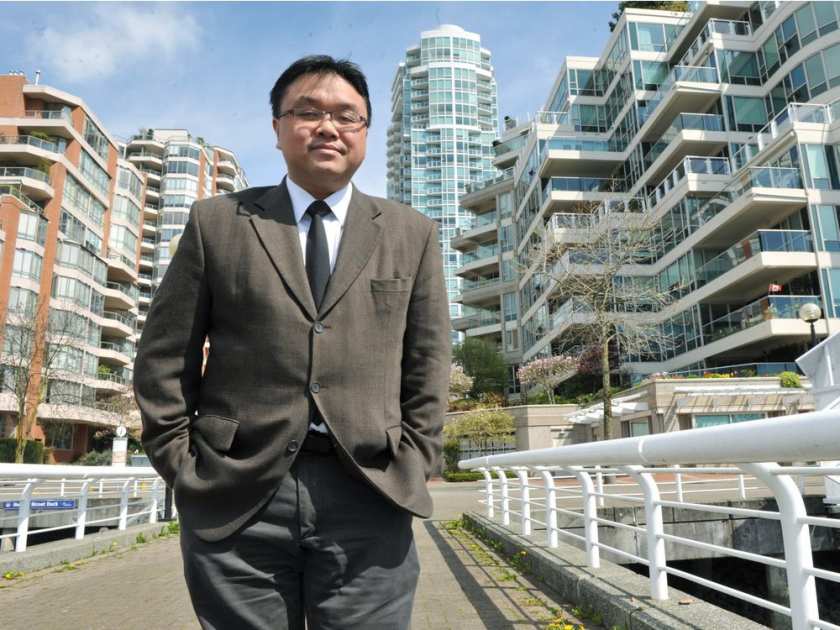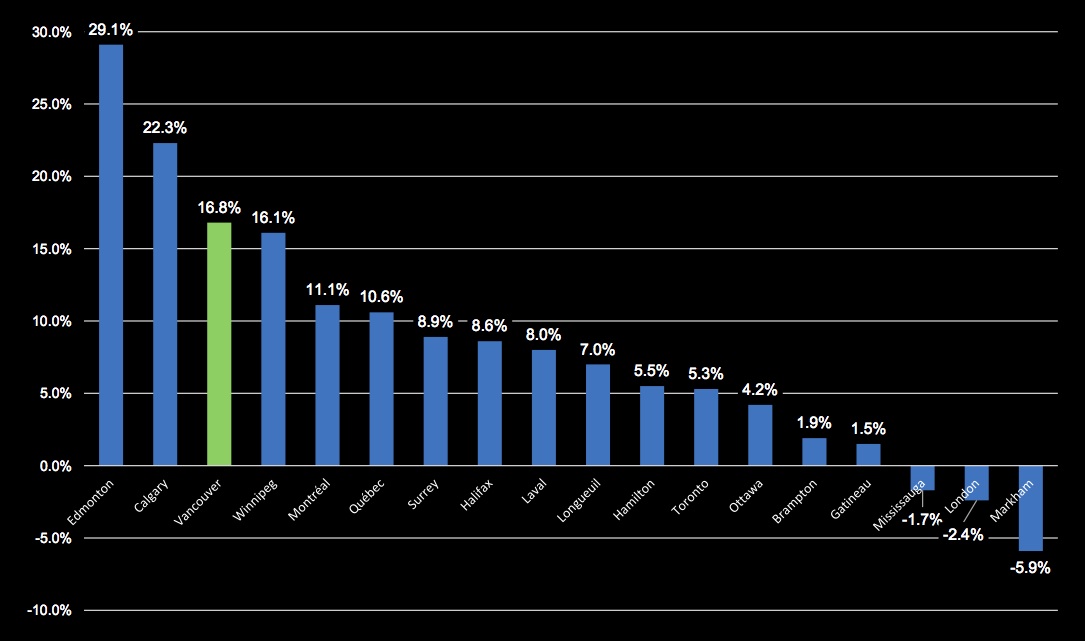
In Metro Vancouver no one gets as excited as Simon Fraser University’s Andy Yan, Director of the City Program when Statistics Canada releases information. Urbanist Andy immediately summed up the surprising gap between median income in Metro Vancouver and housing prices. With median household income at $72,662, Metro Vancouver lags way behind other urban areas, ranking 15th in Canada. And that surprisingly low median income points out what everyone in this region knows-there is a radical disconnect between household income and the price of housing. People working in Metro Vancouver can’t afford to buy a house here.
As reported in the Vancouver Sun by Sam Cooper, Andy surmised this huge gap as “surprising to me that we have the 15th highest incomes in Metro Vancouver, even coming behind Toronto. What we learned today is in Vancouver you are living in paradise, but your wages are in purgatory.” While noting that there was globalization everywhere, Andy observed that “The issue that urgently needs solving is to reconnect local incomes to local housing. But the difficulty is, you will need different policy for different cities.”
Nowhere is that more acute than in the City of Vancouver where average house prices are now $1.4 million dollars. Compare that with a median total household income (2015) of $65,327. Andy also observed that in some areas like Coal Harbour and northwest Richmond wages were even lower than city-wide averages, even though housing prices in those areas were higher. And this has huge ramifications not just on accessibility to the housing market for locals, but for job retention. As Andy notes “If Metro Vancouver doesn’t tackle housing affordability, the growing risk is that talented workers won’t come to the city, and families will start to leave, I think this speaks to why we had a change in provincial government, and I think this could be a factor in upcoming city elections,” Yan said. “You can live here, but you can’t earn your wages here.”
Below are the average housing prices for several other cities in the Province from the first quarter of 2017, with the total household median income below. With comparable median incomes, housing in all of these cities is less than half the cost of housing in Vancouver.
Housing cost -Source: Landcor
Vancouver Island, $567,269
Kootenay, $339,355
Okanagan, $505,892
Total household median income, Statistics Canada 2016 Census
Victoria — $70,283
Kelowna — $71,127
Cranbrook — $72,320
Kamloops — $73,336

Percentage Change in Median Incomes by City 2005-2015 Source: Metro News, Andy Yan













Author
Reblogged this on Sandy James Planner.
It is not surprising at all that Vancouver is expensive and wages are low.
Vancouver has always been a small town in Canada and, including the new government again, industry, head offices and all the associated high-paying jobs are elsewhere in Canada. This is no surprise.
deleted as per editorial policy
Vancouver has always been a small town in Canada and, including the new government again, industry, head offices and all the associated high-paying jobs are elsewhere in Canada.
Oh, do you mean like Calgary where the one-piston economy is in the bin due to low world oil prices that have nothing to do with provincial governments? Where unemployment is now high and house values have decreased by at least 30% as the result?
Simplistic head office counts and a focus on unaffordable detached homes in an area with a chronic land shortage and rampant speculation is not a proper analysis. But that won’t stop pundits from blaming the NDP, Vision or The Kid prime minister for everything the Right selectively says is wrong.
perhaps an idea of which professions earn the highest and which sectors pay the most would help.
I would also rank the quality of local higher learning institutions, the per capita number of post secondary degrees, the diversity of the economy, the ability to move from 19th Century extractive economic models to value-added, the quality of life of cities, the resiliency of cities to deal with climate change and economic downturns, and so forth.
Alex, you did read the article, right? Average income in Calgary is far higher than Metro Vancouver: $99k vs $72k despite their supposedly dire economy. I’m not sure where you pulled the 30% decline in house values from, it’s simply untrue.
http://www.chpc.biz/calgary-housing.html
The 30% decline was from Calgary real estate publications over a year ago. Yes, the stats are now out-of-date, and their economy has stabilized at a lower level than it was in 2013, so it makes sense that housing prices have stabilized too. Relative to Before The Oil Price Crash, which is a Big Thing in a one-trick pony economy, there still has been a decline in value.
Unemployment rates are another thing. Though it’s now decreasing, Calgary is tied with Edmonton with unemployment rates the highest of 33 cities. (Data from August.)
Having grown up there, I have always said that Alberta needs to find ways to diversify its economy which is only a manifestation of the 200+ year old Upper Canada model of resource extraction for the imperial master versus developing a value added economy.
The most remarkable thing about Calgary’s housing prices is that they didn’t totally collapse at the same time as the oil industry. The lesson for Vancouver is likely that if you have good incomes to start with, and housing prices that aren’t subject to foreign influence, you can weather quite a bit of adversity.
I think the most remarkable thing about Calgary’s housing prices is that they remain between 1/3rd and 1/2 of Metro Vancouver’s median even during periods of an overheated resource boom because Calgary does not have a land shortage. They gobble up thousands of hectares a year in raw, cheap and abundant farmland at the periphery for sprawling subdivisions. Foreign money does play out there along with most of the other influences we have, but they do not have a land supply problem.